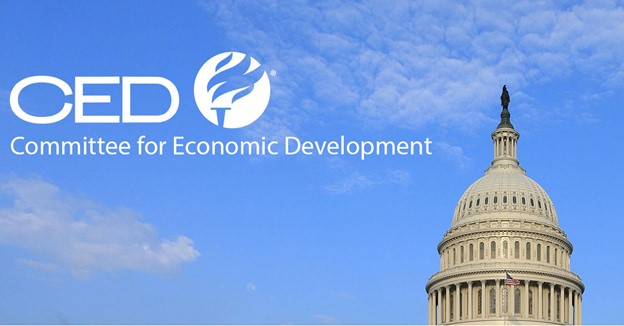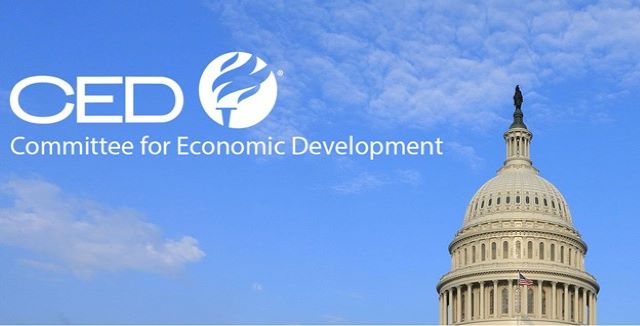Performance management processes should reflect the trends of a future organization, such as increased agility and more individualized employment, and the COVID-19 pandemic may be a catalyst for such changes. In fact, as organizations begin to plan for the next phase of reset and recovery, they might find the opportunity, or even the need, to realign or even redesign their processes. Of course, there are also more immediate concerns, such as whether organizations should proceed with performance evaluation for 2020 and, if so, what the process should look like.
This report outlines some practical actions companies can take to best manage near-term, upcoming performance conversations during the COVID-19 pandemic, as well as four significant trends companies will need to consider if they want to redesign their approaches for an increasingly unpredictable future.
Performance Management during the COVID-19 Pandemic
Some tech firms, like Facebook and Google, have made headlines for eliminating or delaying performance reviews during this atypical time.1 But many other companies are holding performance conversations, though they may look different than usual. When deciding whether to review employee performance during COVID-19, what conversations to hold, and how to handle them, the first consideration should be the purpose of the process. Performance management serves a range of purposes, including focusing on pay and promotion opportunities, identifying poor performers, providing documentation against legal action, and more.2 Any changes to the process, even temporarily, should still support the organization’s original purposes. Armed with a clear understanding of your organization’s intent, you may choose to:
- Revisit and revise goals to reflect complex and evolving business realities. Goal setting can have significant positive effects on motivation, productivity, and performance; however, these effects are contingent on the goals being realistic and, from the employee’s perspective, attainable. Unfortunately, most goals set before the current crisis are neither. Holding employees accountable for meeting unrealistic goals creates stress and damages trust between employer and employee. Goal setting has also been shown to be ineffective in highly uncertain contexts in which employees—and their managers—do not have the information they need to set realistic, meaningful goals. These negative effects are likely to be amplified where people have transitioned unexpectedly to remote working. Managers must review precrisis goals with each employee and confirm “reset” goals, clarifying which pre-COVID-19 goals have been retained, discarded, or amended.
- Set new goals focused on employee learning and growth amid the crisis. While some goals may need to be discarded, new goals may help employees retain purpose and a sense of control during the pandemic. In the current context, setting goals focused on standards of behavior and learning rather than outcomes is likely to have positive effects on employee morale and motivation, and contribute to building the trust that is so critical in remote working. Revise learning goals or prioritize reskilling as job functions and focus change. For example, in response to COVID-19, Debt Relief Co. shifted its emphasis from business metrics to employee development and improvement during performance conversations.3 After doing so, leaders noticed that their employees were more capable and motivated.
- Encourage continuous performance discussions and provide managers with tools and resources to lead through uncertainty. Many companies are starting to reduce the time horizon for goals and set up frequent conversations about progress and performance. Organizations that have moved away from the more traditional annual performance management cycle in recent years are finding that the current environment highlights the benefits of shorter performance cycles with frequent dialogue between managers and employees. On an organizational level, it is important to provide tools, resources, and guidance for managers to feel comfortable having performance conversations, particularly in an uncertain time. For example, guidance on goal setting may be necessary so managers are aware of what can and cannot change. Resources around productivity targets and empathetic feedback during a crisis may also be beneficial. At the University of Wisconsin-Madison, supervisors are having frequent, informal conversations with employees focused on coaching, feedback, and support for employees regarding not only their work, but also their needs and accomplishments.4 Furthermore, the university created a web page with tools and resources for managers on how to supervise remotely, with sections on communicating through uncertainty, professional development planning, and engagement.5
- Identify alternative motivation and recognition strategies to drive employee performance. To maintain cash flow liquidity, many organizations are taking cost-saving measures, including eliminating discretionary bonuses and suspending merit raises. Removing discretionary compensation might damage employee motivation and satisfaction, which in turn could adversely affect employee performance. While monetary rewards may be on hold, organizations can introduce nonfinancial incentives to fulfill the intrinsic needs of employees to continue driving performance. Examples include:
- offering high performers stretch assignments to promote professional development
- creating opportunities for employees to work with or shadow other functions, even if virtually, to expand networks and broaden career interests
- helping senior leaders recognize top performers in public settings with small gifts such as an e-certificate of merit or thank-you card. According to the 2016 Gallup Workplace Survey, nearly one-quarter of participants said their most memorable recognition came from a high-level leader or CEO.6
- Maintain fairness in performance appraisals and reward mechanisms while reevaluating goals or plans. For many organizations, the pandemic has affected business functions and regional entities to different degrees—while some parts of the organization are suffering from sales declines, other units are experiencing revenue growth or productivity improvement. When reevaluating goals and reward mechanisms in response to evolving changes in the market, organizations should factor different situations into consideration to ensure fairness. For each organization, “fairness” will be defined differently, in a way that is most aligned with its unique business and talent goals. For example, a US-based global social media company has announced it will grant every employee a rating of “exceeds expectations” followed by a biannual bonus. One US-based global technology company in a different situation is evaluating where it needs to adjust performance targets in each of its markets. When it comes to sales performance, some organizations have elected to establish temporary sales incentive plans solely based on how each seller performs rather than considering both individual and market performance. A US multinational in the market research industry recently switched to a team-based sales quota for its employees in China.
- Keep in mind furloughed staff or valued contingent workers you will want to reemploy when there is an economic upturn. According to a recent survey of performance management practices among members of The Conference Board in Europe, it is important to offer these workers a sense of belonging and purpose during these uncertain times by emphasizing that the organization is continuing to look to their future. Organizations should clearly indicate that the decision to furlough employees, or to no longer offer contractual work, is not because of any performance issue but is in response to the economic impact of the COVID-19 crisis. For furloughed staff, discuss how the absence might affect their performance, and revise goals and targets accordingly. Actively support them during the furlough by informing them about learning and development opportunities, having coaching discussions, and making frequent social calls to check on their well-being during lockdown so they can return to work successfully—both in terms of engagement and performance.
Performance Management beyond the COVID-19 Pandemic
Historians tell us that crises are more likely to accelerate trends that were already under way, rather than generate radical new directions. The trends toward greater organizational agility and more individualized employment arrangements that underpin our views on the future of performance management predate the COVID-19 crisis. The crisis has acted as a catalyst for implementing such changes, in many cases much more quickly than envisaged. As organizations move from crisis planning to a new reality, they may need to realign or redesign their processes. Four significant trends that we believe are worth considering:
- Adopting Agile performance management This process is characterized by a shift from retrospective analysis of performance to frequent, future-focused discussion and regular feedback from supervisors and often colleagues. Goal setting is flexible and easily adjusted for a change in circumstances, including business conditions. Organizations should consider adopting a more flexible and nimble approach for a business environment that is likely to continue to be turbulent and unpredictable. Early adopters of shorter performance management cycles, with frequent feedback, are finding that these processes support the agility at individual, team, and organizational levels that is required to adapt and thrive in this volatile and uncertain environment. One important benefit of the Agile process is that it facilitates timely feedback, providing vital intelligence on individual, team, or organization performance and enabling speedy course correction of projects. Real-time feedback also enables personal learning and growth. Organizations in fast-changing industries (e.g., IBM, Microsoft, and Cisco) have often led the way in adopting Agile management. Leveraging mobile technology, many companies have now developed performance systems that they can easily and quickly adjust as needed throughout the year. For example, when Microsoft was concerned by a big drop in performance feedback across its organization, the company successfully piloted a new feedback tool with help from the HR consulting firm NeuroLeadership Institute. The new performance tool was designed to help leaders and employees “give and receive feedback in a way that didn’t trigger the brain’s threat response.”7
- Shifting to a focus on team-based performance Before COVID-19, many organizations were moving from functional hierarchies to flatter, team-based structures, creating a need to realign their processes toward team performance. This crisis could create an opportunity to shift the focus away from individuals and onto teams. Some companies, such as Cisco, are moving toward project working and empowered teams, requiring a realignment of performance assessments. Instead of basing performance on manager ratings, the new system now asks managers how they intend to invest in their teams and help employees develop their skills.8
- Aligning management skills with workplace trends Forecasts about the future of work unanimously agree that management skills will be more important than ever. As teams shift to the virtual work that may become a lasting legacy of COVID-19, team leaders must learn to drive performance, inspire purpose, lead with empathy, and communicate transparently with remote and distant team members.9 As we move toward more team-based and project-based work, sophisticated management skills allow organizations not only to engage more frequently with employees, but to adapt the management process itself to meet the diverse needs and employment arrangements of their workforce.
- Developing a purpose-driven, customized performance management process As with many other human capital strategies, in performance management there is a tension between global consistency and local adaptation as we move toward more personalization of employee processes and systems. A shift toward more personalized, localized performance management processes requires renewed attention to organizational purpose and standardized behaviors that are required of all team members. Performance management may be more customized in the future, with local managers empowered to adapt the process to meet the needs of a highly diverse workforce and an array of employment arrangements. As organizations localize these processes, local management will require the flexibility to adapt the process while supporting global standards of behavior that reflect clarity of vision, purpose, and organizational values. As with recent trends in learning and development, talented employees will look for a process that is “just in time, just enough, and just for me.”
2 Rose A. Mueller-Hanson and Elaine D. Pulakos, “Putting the “Performance” Back in Performance Management,” SHRM-SIOP Science of HR White Paper Series, 2015.
3 Brian O’Connell, “How Managers Are Handling Performance Reviews during COVID-19,” Society for Human Resource Management, April 28, 2020.



